Rudi Ball
Ice Hockey player
born June, 22 1911 in Berlin – died September 1975 in Johannesburg (South Africa)
- Bronze Medalist at the Winter Olympics 1932
- Runner-up World Championship and European Champion 1930
- Three-time Spengler Cup Winner
- Eight-time German Champion with the Berliner Schlittschuh-Club
- South African Champion with Wolves IHC 1951
Rudi Ball is one of the most remarkable figures in the history of German ice hockey. He was born in 1911 in Berlin to a Jewish father, a textile merchant, and a Christian mother. In the 1920s and 1930s he belonged to the predominant group of players of European ice hockey. After spending his youth playing for SC Brandenburg, he joined the Berlin Ice Skate Club (BSC) in 1928 together with his brothers Gerhard and Heinz. The Ball brothers led the famous capital city team to win six consecutive German championships between 1928 and 1933. Only five feet and four inches tall, the unbelievably technically gifted Rudi Ball became a key figure of the German national team: in 1930 he won the European and Runner-up World championships with the German team. Two years later, he returned to Germany after capturing the bronze medal at the Olympic Games in Lake Placid.
After the Nazi party took over Germany, it appeared that the hockey career of the Ball brothers in their homeland was over: at the end of 1933, the brothers joined the EHC St. Moritz club in Switzerland and one year later they moved to Milan to join the Diavoli Rossoneri. Even here, Rudi Ball was undoubtedly the star. He led his team twice in capturing the Spengler Cup, the most important European ice hockey tournament.
These victories did not go unnoticed among the new German sports leadership. In the beginning of 1936, Ball was the only athlete of Jewish decent considered for the German squad at the Winter Olympics in Garmish-Partenkirchen. Allegedly, team captain Gustav Jaenecke stipulated that he would only participate in the games if Ball were also nominated to compete. Ball was regularly put in to play on the ice during the Winter Olympics, but after acquiring an injury he was forced to watch from the bench as his team landed in fifth place.
In 1936 Rudi Ball accepted an offer from his old team and returned to BSC. Due to his so-called “Half Jewish” status and given his Olympic appearance, he was spared from the on going persecution against Jews. In 1936 and 1937 he went on to win two more German championships with BSC. It was not until 1943 that the Ministry of Propaganda’s “Removal from German Sports” had its affect on him.
At the age of 35, and only a year and a half following the end of the war, the old-timer returned to the ice. Of all places it was the Berliner Sportpalast, where four years earlier Joseph Goebbels declared “Total War”, that the ice hockey legend Rudi Ball returned to fascinate the crowds once again. He made a triumphant return in his first post-war game by scoring a total of five goals.
Despite his success, Rudi Ball decided along with his brother Gerhard, to join their brother Heinz who had already immigrated to South Africa in 1935. Once arriving in South Africa, Rudi Ball left his great ice hockey career behind and built a new life for himself becoming a businessman in the 1950s. He died in Johannesburg in 1975 at the age of 64.
Henry Wahlig/Berno Bahro






